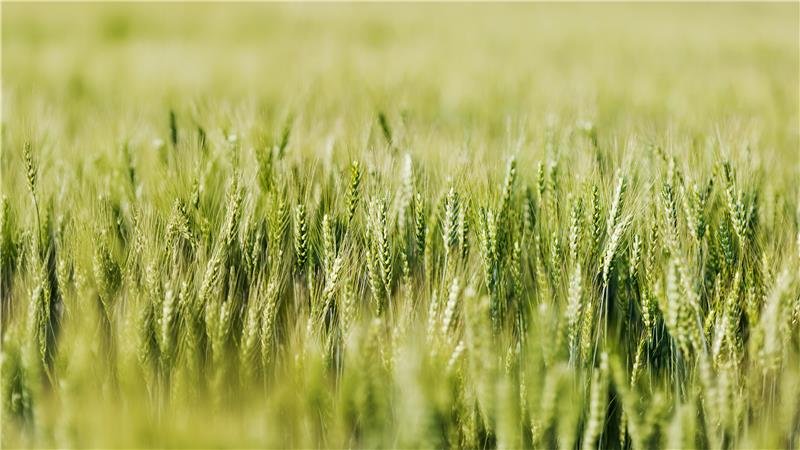

Frontiers Forum Deep Dive series
Enabling sustainable crop protection with induced resistance in plants
5 December 2024
At this event, renowned researchers explored how induced resistance in plants can help reduce pesticide use, increase crop resilience, and boost crop quality.

Speakers
-

Prof Brigitte Mauch-Mani
Université de Neuchâtel, Switzerland
-

Prof Tina Kyndt
Ghent University, Belgium
-

Prof Maria J. Pozo
Spanish National Research Council (CSIC), Spain
-

Prof Jurriaan Ton
The University of Sheffield, UK
-

Dr Jyoti Shah
University of North Texas, USA

Boosting plant immunity for sustainable agriculture
This event builds on a Frontiers in Science lead article that outlines technologies to enhance plants' natural immune systems, as part of a sustainable strategy to protect crops against pests and pathogens. This approach reduces reliance on excessive use of pesticides and can help control emerging pests and diseases—with the co-benefit of improving food quality.
The article authors and other experts discussed how further research, stronger regulatory support, and economic incentives are key next steps for the widespread adoption of induced resistance technologies.
Agenda
Introduction & setting the scene | Prof Brigitte Mauch-Mani
Deep dive
Charting a path forward | Panel discussion and Q&A

Speaker and contributor bios
-
Brigitte Mauch-Mani
Retired Professor
University of Neuchâtel, SwitzerlandProf Brigitte Mauch-Mani has significantly advanced our understanding of plant-microbe interactions, induced resistance, and plant defense mechanisms. Her pioneering research has led to key discoveries such as the elucidation of beta-aminobutyric acid-induced resistance against downy mildew in grapevine and the role of transcription factors in plant defense responses.
As Specialty Chief Editor for Frontiers in Plant Science she drives innovation in the field. Her contributions are instrumental in developing sustainable agricultural practices, improving crop quality and bolstering food security.
-
Tina Kyndt
Associate Professor, Ghent University, Belgium
Prof Tina Kyndt heads the Kyndt-lab where her team specializes in plant immunity research, particularly against parasitic nematodes and the role of epigenetics in rice stress responses. They discovered that nematode infections could trigger intergenerational resistance in rice offspring through epigenetic pathways.
Tina and her team have also discovered and patented several novel biopesticide molecules that induce resistance to control nematode infections in crops. These compounds are being tested in field experiments across various countries to assess their agricultural potential. Their application could offer an effective and environmentally friendly alternative to synthetic pesticides, enhancing sustainable farming practices.
-
Maria J. Pozo
Estación Experimental del Zaidín (EEZ),Spanish National Research Council (CSIC), Spain
Prof Maria J. Pozo is a biologist and scientific researcher with particular expertize in the arbuscular mycorrhizal symbiosis and its effects on plant health and immunity. Her groundbreaking work exploring how beneficial soil microorganisms can be harnessed to improve plant health and productivity has advanced sustainable farming practices and enhanced crop resilience to climate change. All while reducing the need for chemical inputs.
Maria collaborates with interdisciplinary teams across Europe, driving forward research that integrates molecular biology and ecological modeling. She actively mentors young scientists, to develop the next generation of environmental researchers.
-
Jurriaan Ton
Professor of Plant Enviromental Signalling, School of Biosciences
The University of Sheffield, UKProf Jurriaan Ton is a prominent plant pathologist driving the exploration of plant adaptation to recurrent stress from pests and diseases. His lab focuses on the molecular perception and signaling of chemicals that prime plant immunity (‘plant vaccines’), the epigenetic pathways that enable plants to memorize environmental stress and develop long-term resistance, and the functional relationship between root exudation chemistry and root-associated microbial communities to boost plant resilience.
As an executive board member of the Sheffield Institute for Sustainable Food, Jurriaan collaborates closely with agricultural stakeholders to translate fundamental research on plant model systems into practical, sustainable solutions for crop protection.
-
Jyoti Shah
Distinguished Research Professor and Chair, Biological Sciences
University of North Texas, USAOver the past 25 years, Jyoti Shah has led a distinguished career in plant immunity, developing an internationally recognized program focused on plant defense signaling. His work has led to novel strategies for mitigating Fusarium head blight disease in wheat. Supported by the US National Science Foundation, Department of Agriculture, and the US Wheat and Barley Scab Initiative, his lab has also pioneered pivotal tools to develop a model system for studying plant defense against aphids.
Jyoti also serves as the chair of the Department of Biological Sciences at UNT and recently received the 2024 Decker Scholar Award honoring excellence in research in natural sciences, computational sciences, or technology. His contributions have significantly advanced the understanding of plant-pathogen interactions and continue to impact agricultural practices globally.
